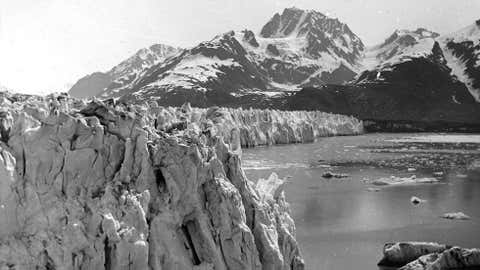

US
°C





Several glaciers exist near the equator at high elevations in the Indonesian province of Papua.NASA has documented decades of retreat from these glaciers.Some have lost all their ice, while others are retreating rapidly.
There are glaciers – and snowfall – near the equator, for a limited time only.
Images released by NASA's Earth Observatory show the , a towering peak in the Indonesian province of Papua. Over the course of just a few decades, severalglaciers near the 16,020-foot peak have retreated at a blistering pace or disappeared entirely, as seen in theanimated image below.
"The ice area losses since the 1980s here are quite striking, visible in the contrast of the blue ice with the reddish bedrock," Christopher Shuman, a research professor at the University of Maryland Baltimore County, told NASA. "Even though the area still gets snowfalls, it is clearly not sustaining these glacial remnants."
(MORE:)
The first image, acquired Nov. 3, 1988, was capturedby the Thematic Mapper on Landsat 5. The second image, captured by theOperational Land Imager (OLI) on the Landsat 8 satellite, was taken Dec. 5, 2017.
The images are false-color, which brings out features in striking detail. The ice is seen in light blue, while vegetation is green and the Grasberg mine in the second image is gray.
This animated image shows the retreat of several glaciers near Puncak Jaya in Indonesia. The first image was taken Nov. 3, 1988, while the second, which shows the glacial retreat, was acquired Dec. 5, 2017. Both images are false color.
(NASA)
Ice loss in this area has been happening for decades, but two of the five ice fields observed in 1988 , NASA showed in a separate post. Now, three of the five masses of ice are gone, and the remaining two continue to shrink rapidly.
Andrew Klein, a geography professor at Texas A&M University, estimates that the ice retreat likely began around the 1850s.
"Glacier recession continues in the tropics – these happen to be the last glaciers ," said Klein. "Fortunately, the impact will be limited given their small size and the fact that they do not represent a significant water resource."












